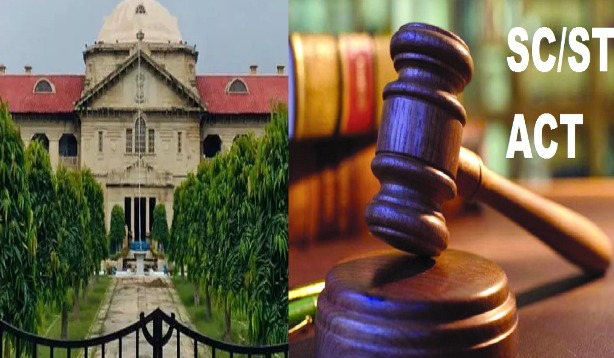
The Allahabad High Court recently quashed the subordinate court order summoning an accused for a trial under the Scheduled Caste and Scheduled Tribe (Prevention of Atrocities) Act, 1989, because the alleged act of abusing the victim occurred inside the car, not in public view.
The bench of Justice Raj Beer Singh relied on the Uttarakhand High Court’s ruling in the case of Hitesh Verma vs. The State of Uttrakhand and another 2020 AIR (SC) 5584, which held that if the alleged incident of abuse occurred inside the car, which is not visible to the public, no offence under Section 3(1)(da), (dha) can be said to have been made out.
The Court also quashed the non-bailable warrants issued against the accused, but upheld the summoning of the accused-appellant for offences under Sections 323, 504, 506, and 406 of the IPC.
The order was passed during the hearing of a Criminal Appeal filed under Section 14-A (1) of the SC/ST Act by one Syed Mohiuddin Ahmad against the summoning order of the Special Judge, SC/ST Act, Allahabad. The chargesheet filed in the case was also challenged.
The allegations against the accused were that the informant executed the sale deed at the instance of the appellant and that in exchange for the consideration amount, he was given two cheques, which were dishonoured when he presented them to the bank.
Accordingly, on July 15, 2019, the appellant called the informant under the guise of providing the said amount of the sale deed, and the appellant and his associates forcibly dragged him into a car, assaulted and abused him using caste-indicative language, and threw him out of the car.
The appellant argued before the court that respondent No.3 filed the FIR in the case, making false and baseless allegations, by filing an application under Section 156(3) CrPC even though the dispute was civil in nature.
Advocates Ghazala Bano Quadri and Maseeh Uddin, representing the appellant also contended that by the impugned order dated 24.03.2021, cognizance was taken and the appellant was summoned, and by the same order, non-bailable warrants were issued against the appellant, which is contrary to the well-established position of law.
It was finally submitted that, according to the first informant’s version, the alleged incident of abuse occurred inside the car, and thus it cannot be said that respondent No.3/informant was abused or humiliated on grounds of his caste within public view.
Taking the facts of the case and the settled position of law regarding the issuance of non-bailable offence, the bench observed that in order to secure the attendance of the accused, the court should first issue a summon simpliciter or bailable warrant to the accused and only then, if he does not appear after service, a non-bailable warrant of arrest should be issued as a last resort to secure the accused’s presence.
In light of this, the Court noted that in the instant case, the proper legal procedure was not followed when issuing non-bailable warrants against the appellant, and thus the order pertaining to the issuance of non-bailable warrants was invalid in law.
Furthermore, because the alleged incident of abusing the informant occurred inside the car, the Court quashed the summoning order vis-a-vis SC/ST Act offence as well as the NBW.
“The summoning order in question has been modified to that extent. In accordance with the law, the case under Sections 323, 504, 506, 406 IPC shall be brought against the appellant/accused before the Competent Court,” as it concluded the case, the Court clarified further.
As a result, the Court dismissed the appeal.




